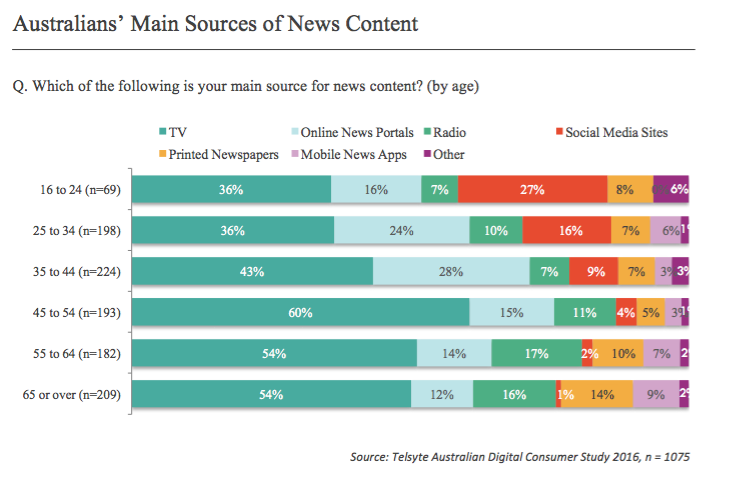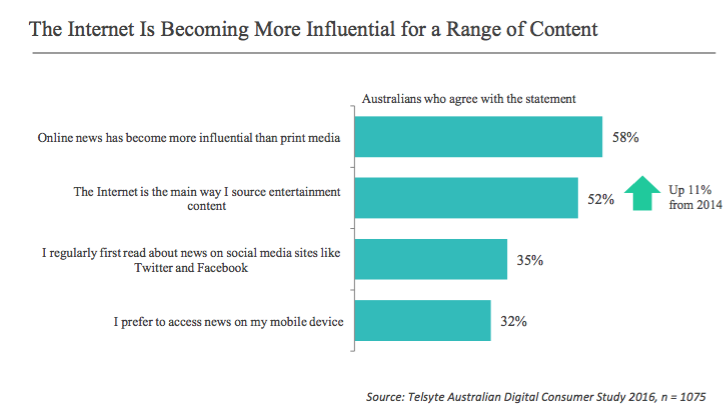• Online news portals have become a mainstream source of news for Aussies
Last month, Fairfax Media CEO Greg Hywood said that it wouldn’t be a “radical” proposition that print media could be replaced by digital. “There’s going to be a transition period until inevitably one virtually replaces the other,” he told a Fairfax masthead. “To acknowledge this is just being honest and realistic. To hide this is actually being dishonest and unrealistic both to the people in your organisation and to your customers. So let’s just be frank.”
New research from media monitoring agency Meltwater echoed Hywood’s view with a report into the news media consumption habits of Australians. The research found that almost 60% of Australians over the age of 16 believe online news has become more influential than print. Furthermore, 35% of Australians aged 16 and over regularly read news first on social media.
“The changing preference of people now is to gain news quicker and whenever and wherever they want. Mobile provides them with a fantastic platform to be able to do that. That is what is carrying the huge shift towards digital,” Meltwater ANZ director David Hickey told Mediaweek.
While adoption of digital amongst young Australians is not surprising, the research shows that Australians aged 65 and over are using online news portals (12%) almost as much as printed newspapers (14%) as their main source of news.
Overall, TV remains the medium of choice for all age groups (16-24, 25-34, 35-44, 45-54, 55-64 and 65+) for their news.
The report shows that digital is the most influential medium in the workplace. But in a breakdown, it also states: “Far from being a legacy medium, print is still more influential than TV or social media among senior managers.” Explaining the contradictory statement, Hickey said: “Overall, in terms of the business as a whole, the digital platform as we say in the report is the most important though there can be different preferences for different age groups and tiers. Naturally more senior members of the staff are going to be of the baby boomer generation so they can naturally have different preferences as well.”
The study suggests Australian consumers, along with video, consider the feature- length articles online of high value.
“One of things to acknowledge about the rise of digital platforms is that there are more people accessing news content now than there has ever has been before,” Hickey said. “With digital, naturally short-form journalism is a big part of it, but people can choose their own adventure. There is space for quality journalism as people are going to want to read in more depth.”
Image: Japanexperterna


